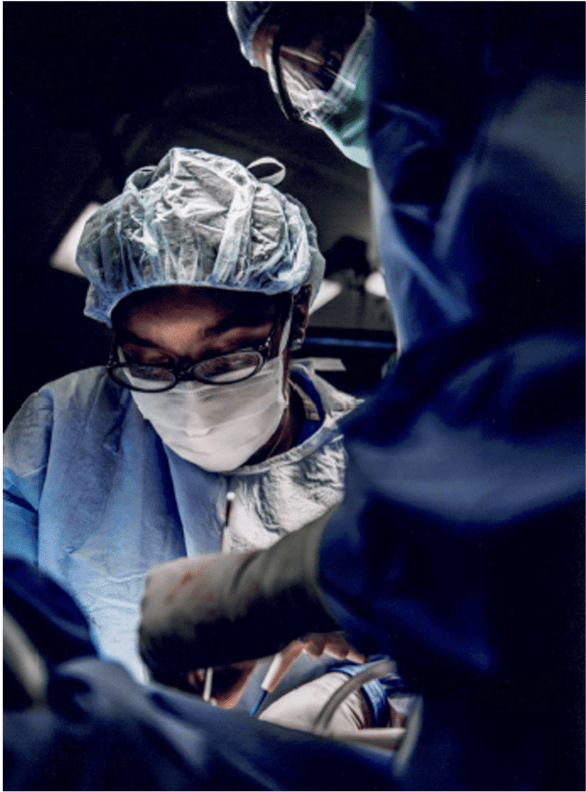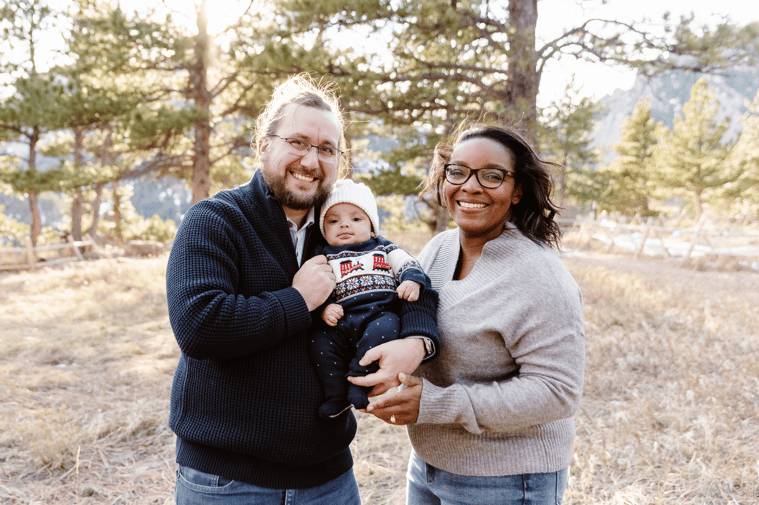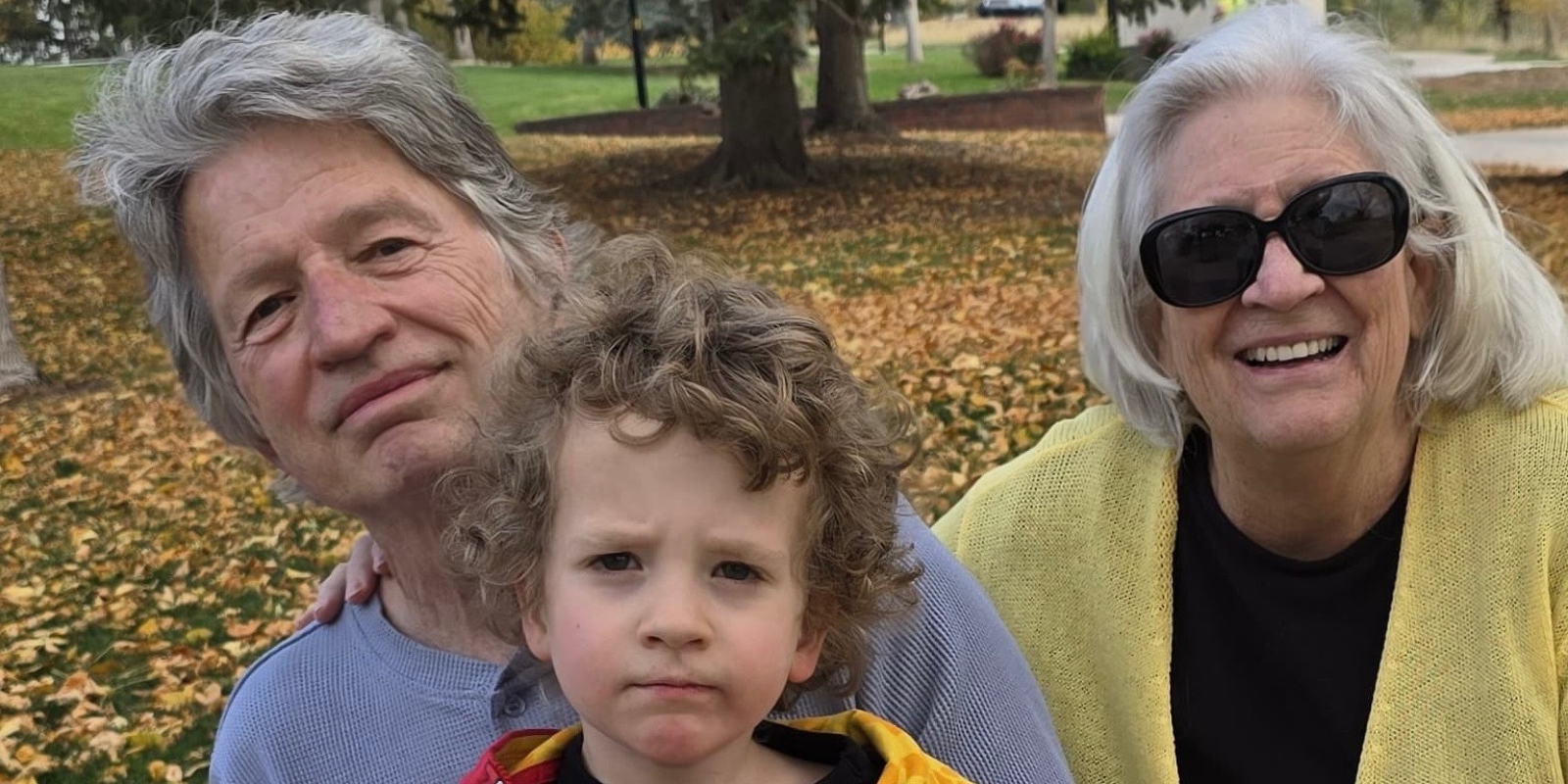When Lauren Steward, MD, was 5, her parents presented her with three career options: doctor, lawyer, or engineer.
They’d offered the same options to her three other siblings, who didn’t bite, but their quiet, introspective third child gave it some thought. She wasn’t much of a talker, so being a lawyer didn’t seem like a good fit. Both her parents are engineers, “but they didn’t seem to be doing anything interesting,” she recalls, “so I thought, ‘I guess I’m going to be a doctor.’ And I’ve been on this medicine train since I was 5.”
There’s a lot more to the story, of course, but the theme is that she made the right choice for herself. Now Steward, an assistant professor of GI, trauma, and endocrine surgery in the University of Colorado School of Medicine, is working with CU colleagues to increase recruitment and retention of individuals from diverse backgrounds. She helped establish a scholarship for students from underrepresented communities who are interested in completing a residency at the CU School of Medicine.

Lauren Steward, MD, in the operating room.
“I feel like I had all the resources I needed, but I feel very privileged to have had that,” Steward says. “I realize there are plenty of people who have not had access to that and who are incredible people who could bring so much insight and innovation to medicine. We need to be seeking out and supporting these people.”
Following a childhood choice
Going back to that 5-year-old decision, though, there were early signs that Steward had chosen the right path. As a child, she was obsessed with the board game Operation and the computer game Operation Frog, which is true to its name: Players explore the inner body of a frog, dissect it, and reconstruct it.
“My mother told me later that she and my dad were like, ‘Oh, yeah, she’s going to be a surgeon’,” Steward says. “I had no idea, I just liked the games.”
She cultivated her love for science through middle and high school in St. Louis, Missouri, and went on to study human biology as an undergraduate at Stanford University. And because she’d known she was going to be a doctor since she was 5, the decision to switch coasts and attend Harvard Medical School felt like the natural next step.
Before taking that step, though, she learned about policy in Washington, D.C. focusing on health disparities. “Your perception of medicine as you’re growing up versus being here now are very different,” Steward explains. “I was very interested in policy at one point so I completed internships in D.C., which helped emphasize to me that I do want to be in medicine and that I can be influencing policy inside of it.”
In medical school, Steward gravitated to surgery in part because of its immediacy: “Especially in trauma surgery, I saw that when there’s a problem, I can intervene pretty quickly,” she says.
Learning trauma surgery
After completing a general surgery residency at Washington University in St. Louis, Steward accepted a trauma surgery fellowship at the CU School of Medicine, drawn by the program’s reputation and its dynamic partnership with Denver Health.
“I actually had no idea I was going to end up in trauma when I chose surgery,” she says. “When I was a research intern, my focus was breast oncology. But I realized my personality as well as my interests lean more toward trauma patients, in particular ICU patients. I really enjoy the physiology and the idea that we take care of the whole patient through surgery and their entire ICU stay, into rehab. What ultimately helped me make the decision was I realized I could not isolate myself to one portion of the body, I wanted to take care of all of it.”
Coming from St. Louis, she says, Denver initially seemed more calm, though rates of trauma have steadily increased, particularly penetrating trauma including gunshots. “There’s ongoing research looking at why that is, whether it’s partially a result of the pandemic or changes in economic status. But our cases are increasingly complex.”
In that context, she’s had increasing opportunities to grow as a surgical leader, especially in cases of polytrauma, or traumatic injuries to multiple body parts or organ systems. In those cases, she manages multiple teams to help stabilize a patient in crisis.
“When a patient comes in with polytrauma, the focus is, ‘Something happened to you, I’m going to do everything I can to help make it better’,” Steward says. “I realized that I’m not afraid to get into the fire and deal with the chaos. Plus, I enjoy the fact that I never know what I’m going to walk into.”
Increasing diversity in health care
Steward’s experiences working with trauma patients at UCHealth University of Colorado Hospital have also strengthened her commitment to supporting and growing efforts to increase diversity in health care, especially in recruiting and retaining medical students and residents.
“One thing I’m proud of is that we’ve entirely changed the way we evaluate resident applicants, from a system that was primarily numbers-based to one that considers leadership qualities, volunteerism, research aptitude, background, and distance traveled,” Steward explains. “We’re looking at applicants more holistically as opposed to just metrics.
“I think more and more we’re realizing that we really limit a program’s potential when we only accept people who’ve had lifelong access to certain resources. If we only accept a certain pedigree, then there’s a very limited number of people out there who meet those criteria and I don’t think there’s any data that correlates them with success in academic medicine. We’re just trying to change the conversation about who’s qualified and who’s not qualified.”
Steward also is very involved with ICU quality improvement initiatives and is interested in someday heading an ICU department, as well as working to help standardize ICU practices across health systems.

Lauren Steward, MD, (right) with her husband and their son.
She and her husband also are parents to a 6-month-old son, “so my plate is pretty full,” she admits with a laugh. While she says she probably won’t present him with the “doctor, lawyer, engineer” question when he’s 5, “it’s amazing that a choice I made when I was 5 has turned out to be the thing I absolutely want to be doing.”




